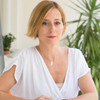How a food engineer became a threat to the government
Associate Professor Şık was the deputy director of the Food Safety and Agricultural Research Center at Akdeniz University. Then, due to his scientific research, he became an enemy of the state.
“I don’t know what will come next,” Associate Professor Bulent Şık told me on the phone. We spoke a day before he was sentenced to five to 12 years in prison in his final court hearing.
As one of the rare, brave scientists working with critical data on health safety in Turkey, Şık has been under increasing pressure. First he lost his job, then the government opened a criminal case against him. On September 26, he was sentenced to 15 months in prison.
How did the situation get to this point?
Associate Professor Şık was the deputy director of the Food Safety and Agricultural Research Center at Akdeniz University, based in Antalya. In 2011, the Ministry of Health decided to conduct research in conjunction with the university to examine the correlation between toxic residue and the increasing cancer rate in five cities. Şık contributed to the study and analyzed thousands of food and water samples.
The research took four years, and the results were more frightening than expected. Şık asked Ministry officials when they would take action based on the results, but they answered, "We'll see."
They did eventually act, but in an unexpected way. In 2015, Şık, along with more than 2,000 academics, signed the Academics for Peace petition. Soon after, he was removed from his position as director and from his research projects. After the coup attempt in July 2016, he was expelled from the university system as a part of a government decree. So far, 6,081 academics have been expelled in total. In total, 549 Peace Academicians were removed and banned from public service with decree laws, dismissed, forced to resign or retire. 789 academicians were tried for signing the petition, four were arrested, hundreds got fined and their passports were confiscated.
Is publishing "the poison list" a crime?
Şık lost his academic title and job, and his brother, the prominent journalist and HDP MP Ahmet Şık, was imprisoned.
Yet Şık's mind was on the data sitting in his computer. He continued to ask local officials if they had been informed about the research and whether any precautions had been taken. A CHP MP raised the question in the Parliament to no effect.
In 2018, Şık came to the conclusion that nothing would be done on the part of the government, and he started to work to make his own data public.
On April 15, 2018, the newspaper Cumhuriyet published a series of articles under the headline "The state has concealed which products are carcinogenic—we are making them public! Here is the poison list."
According to the findings, drinking water in the northern part of the Thrace region and Kocaeli, a city 80 kilometers from Istanbul, contained high levels of carcinogenic elements such as aluminium, arsenic, and lead. Şık also studied pesticides in agricultural products and found that 17% contained above-average levels of dangerous chemicals that are especially harmful to children and infants.
After the series was published in Cumhuriyet, the Ministry of Health filed a court case against Şık, alleging that he illegally shared the findings of the project conducted by the Ministry of Health.
Şık: They don't tackle cancer, they tackle me!
The series sparked limited public attention because the mainstream media did not report on the study and the health risks. The way the pro-government, mainstream media covered the case says it all:
“HDP MP Ahmet Şık’s brother Bülent Şık took part in the Ministry of Health research on carcinogens. After he was fired, he leaked data without the permission of the government. Thus, he received a prison sentence of 1 year and 3 months.” (Sabah Daily, 26.9.2019)
In an interview with Gazete Duvar, Şık said, “The research contains critical information about where and why there is heavy pollution. For the first time, we have data on which chemical compounds are polluting specific areas. And we also know why some cancer forms are on the rise. This means that the polluters can be found. But I think the Ministry does not want to bother them. They don’t tackle cancer, they tackle me!”
Şık’s final hearing was monitored by lawyers, human rights defenders and professional organizations. He has been sentenced to 1 year and 3 months in prison on the charge of "disclosing information about one's duties" while he has been acquitted of "procuring prohibited information." Now, his lawyers will appeal the verdict, which will either reverse or uphold the prison sentence.
When I asked Şık if he felt any regrets, he answered promptly: “If you conduct a research which implies millions of people can be affected with cancer, you can’t simply act as if nothing is wrong and hide it. Governments might do that, but an academic can’t. Personally, I will not give up my quest to pursue the truth. We need to rivive the public sphere in order to remind the government not to act like conglomerates but do their jobs. Which is to protect public health.”
Amnesty International underlines the fact that Şık is a whistleblower and his actions are protected under the right of freedom of expression which includes the right to freely disseminate and receive information.
One should keep in mind that the European Council formally adopted new rules on whistle blower protection. New rules provide a high level of protection to whistle blowers against retaliation.

